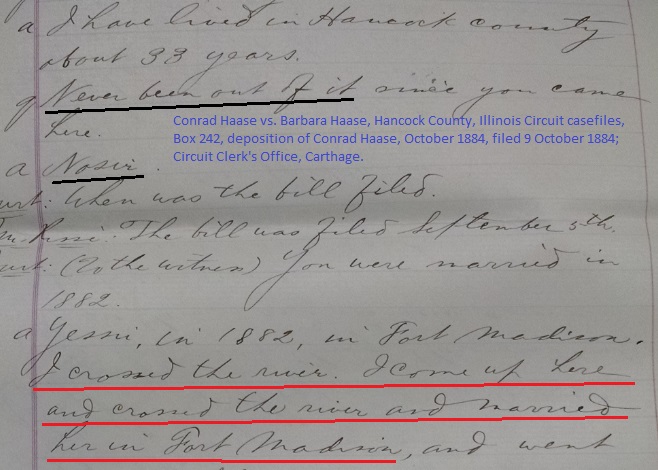
Conrad Haase stated in October of 1884 in open court that he had lived in Hancock County for thirty-three years and had never been out of the county “since he came here.”
A few moments after making that statement, he said “I crossed the river and married her in Ft. Madison.”
Technically he had left the county. The Mississippi River forms the western boundary of Hancock County, Illinois. Fort Madison is in Iowa–across the Mississippi River. It’s clearly not in Hancock County. The Mississippi River is not something one usually crosses without being aware of it.
The judge was asking Haase questions and I’m not clear why he didn’t follow up on the statement Haase made about his residence since he did as Haase to clarify other statements.
What I think Haase meant was that he had not left the general area of Hancock County since his arrival. While Ft. Madison is not in Hancock County, it’s not as if Haase traveled hundreds of miles. I’m inclined to think that Haase’s statement about his residence is essentially true even if it’s not literally true.
The court testimony should be transcribed exactly as it was written. Any comments about the discrepancy should be noted separately from the actual text of the document–if only to indicate to someone else and to myself that I noticed the discrepancy in Conrad’s testimony. That shows that I was thinking about the document as I transcribed it.
Inconsistencies in a document should be noted–even if the reason for the discrepancy cannot be determined.
For some of us statements that are essentially true in spirit are frustrating. We like statements that are true across the board. The problem is that many statements are not entirely true. It’s up to researchers to determine how much credence to a statement.
Even if that statement is made in open court.
Unfortunately some of our ancestors crossed the river and ended up mentioning it in court.

No responses yet